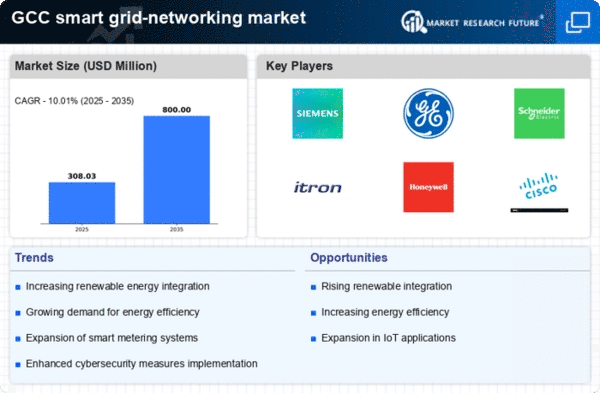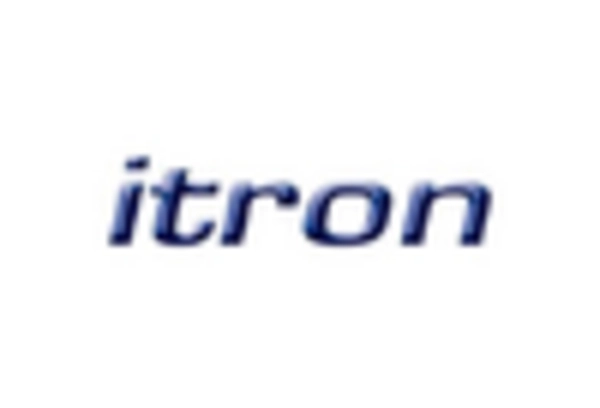Rising Demand for Energy Efficiency
The smart grid-networking market is experiencing a notable surge in demand for energy efficiency solutions across the GCC region. Governments and utilities are increasingly prioritizing the reduction of energy consumption and operational costs. This trend is driven by the need to meet ambitious sustainability targets and to enhance the reliability of energy supply. According to recent data, energy efficiency measures can lead to savings of up to 30% in energy consumption. As a result, investments in smart grid technologies that facilitate real-time monitoring and management of energy usage are becoming essential. The integration of advanced metering infrastructure and demand response systems is likely to play a pivotal role in achieving these efficiency goals, thereby propelling the growth of the smart grid-networking market in the GCC.
Growing Consumer Awareness and Engagement
Consumer awareness and engagement are playing a crucial role in shaping the smart grid-networking market in the GCC. As individuals become more informed about energy consumption and sustainability, there is a growing demand for technologies that empower consumers to manage their energy use effectively. Smart meters and home energy management systems are increasingly being adopted, allowing consumers to monitor their energy consumption in real-time. This trend is likely to drive the growth of the smart grid-networking market, as utilities seek to enhance customer engagement and satisfaction. Furthermore, educational campaigns and initiatives aimed at promoting energy conservation are expected to further stimulate interest in smart grid solutions.
Government Initiatives and Regulatory Support
Government initiatives and regulatory frameworks are significantly influencing the smart grid-networking market in the GCC. Various national policies are being implemented to promote the adoption of smart grid technologies, which are seen as vital for enhancing energy security and sustainability. For instance, the GCC countries have set ambitious targets for renewable energy integration, which necessitates the deployment of smart grid solutions. Regulatory bodies are also providing incentives for investments in smart grid infrastructure, which could potentially reach billions of dollars in the coming years. This supportive environment is likely to encourage both public and private sector participation in the smart grid-networking market, fostering innovation and technological advancements.
Technological Advancements in Grid Management
Technological advancements are reshaping the smart grid-networking market, particularly in the GCC region. Innovations in grid management technologies, such as artificial intelligence and machine learning, are enhancing the capabilities of smart grids. These technologies enable predictive maintenance, real-time data analytics, and improved grid resilience. The market is projected to grow as utilities adopt these advanced solutions to optimize grid operations and reduce downtime. Furthermore, the increasing deployment of Internet of Things (IoT) devices is facilitating better communication and data exchange within the grid. This trend indicates a shift towards more intelligent and automated grid systems, which is likely to drive the expansion of the smart grid-networking market.
Integration of Electric Vehicles and Charging Infrastructure
The integration of electric vehicles (EVs) and their associated charging infrastructure is emerging as a key driver for the smart grid-networking market in the GCC. As the region aims to diversify its energy sources and reduce carbon emissions, the adoption of EVs is gaining momentum. This shift necessitates the development of smart charging solutions that can manage the increased demand on the grid. The smart grid-networking market is expected to benefit from investments in EV charging stations, which are projected to reach several billion dollars by 2030. Additionally, the ability to integrate EVs into the grid as mobile energy storage units presents a unique opportunity for enhancing grid stability and efficiency.
















